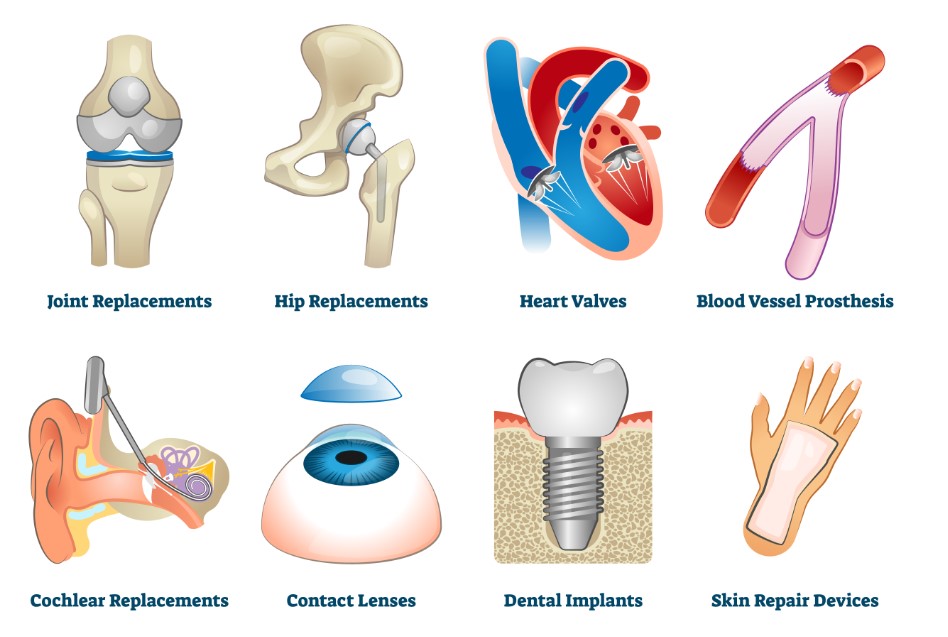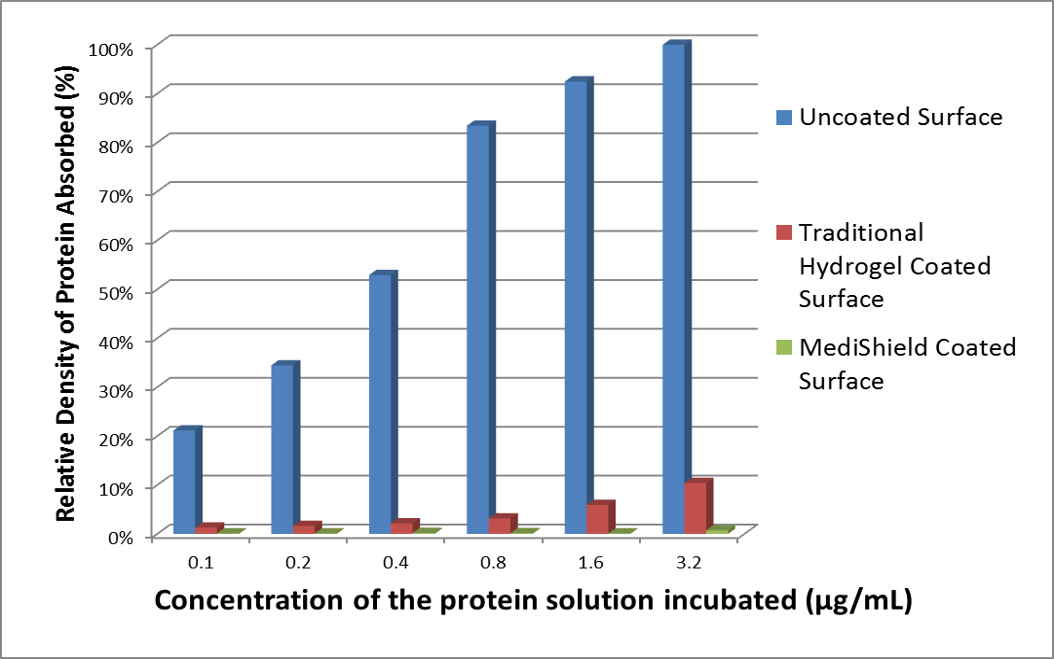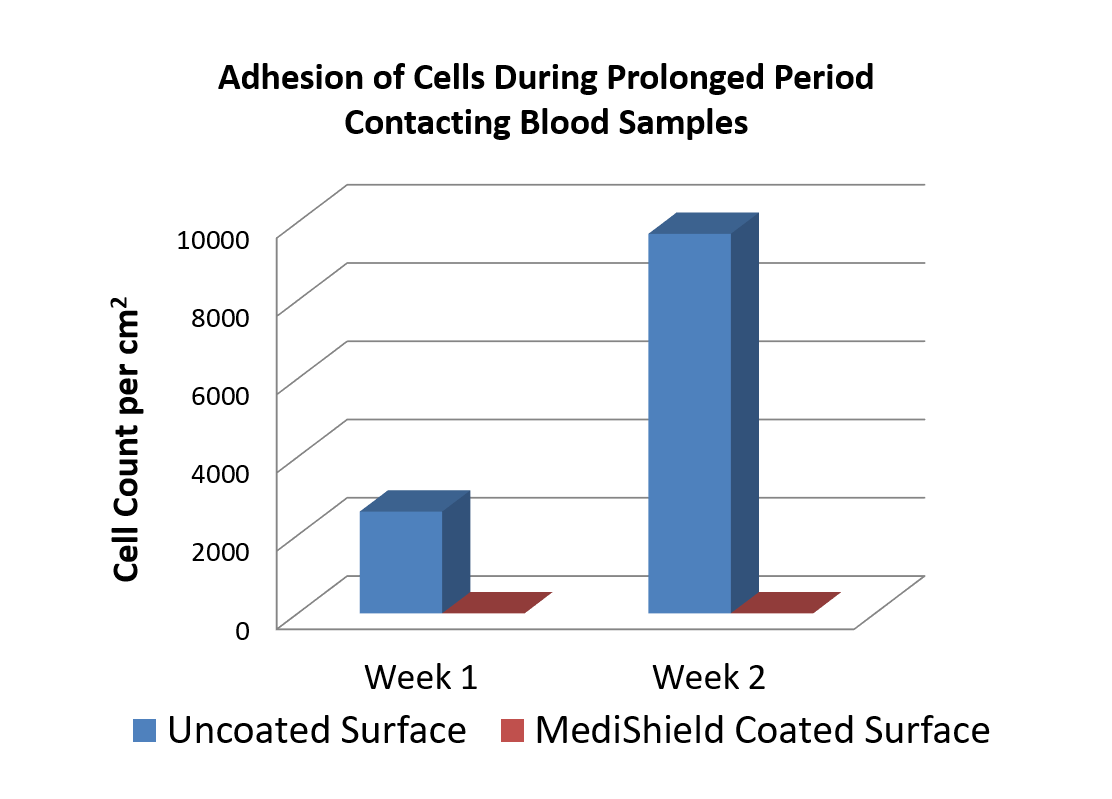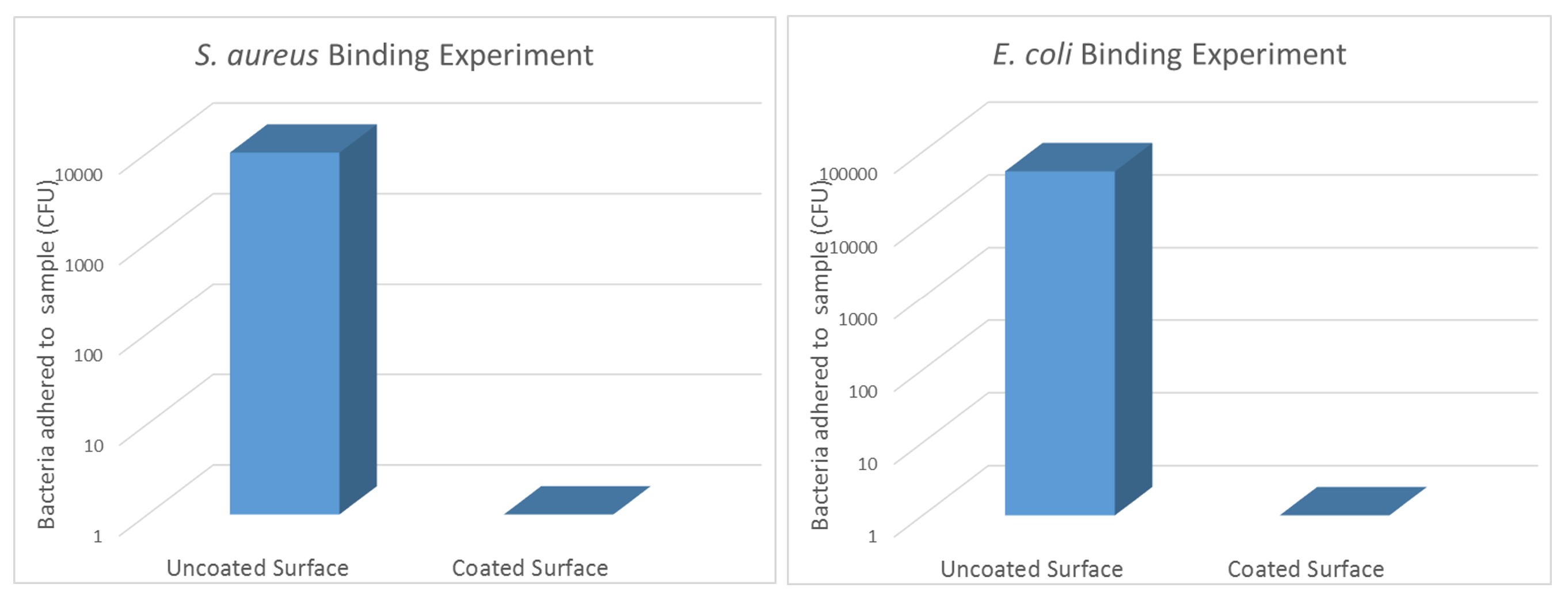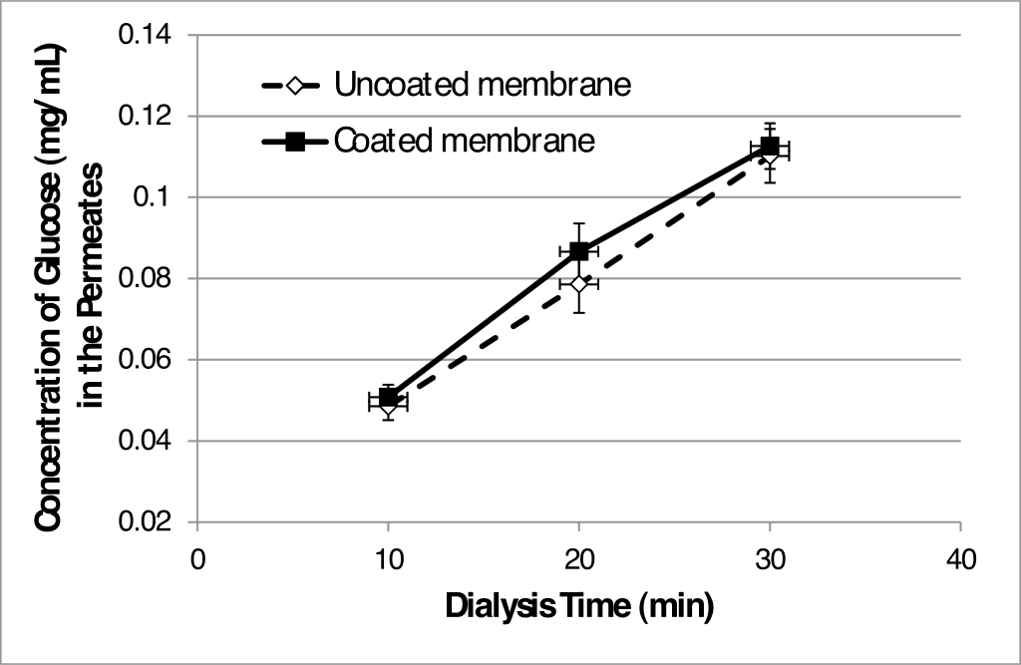MediShield™ Biocompatible Coatings
For implantable and indwelling medical devices and biosensors, biofouling is a significant challenge
that can lead to device malfunction, foreign body responses, and infection. The biofouling process
typically begins with nonspecific protein adsorption onto the device surface, followed by cellular
attachment to the adsorbed proteins.
To mitigate biofouling, hydrogel coatings are commonly applied to resist protein adsorption.
By minimizing protein binding, subsequent cell adhesion is significantly reduced, thereby limiting
biofouling. As a result, these coatings help improve device performance, reliability, and safety
during in vivo use.
Medical Surface has developed the MediShield™ Biocompatible Coatings (an innovative hydrogel coating)
to effectively limit the Foreign Body Response and to significantly extend the life of implanted
devices and biosensors.
Exceptionally Low Protein Binding
The binding of host proteins to the surface of implanted medical devices
is recognized to be the beginning of the biofouling process. The MediShield™ Biocompatible Coatings
have been specifically designed to resist protein adsorption and has significantly
protein binding compared to traditional coated hydrogels.
Resistance to Cellular Adhesion
The adsorption of host proteins onto the implant surface, including complement related proteins
leads to an initial inflammatory response at the implant site. Monocytes and macrophages
recruit other cells, resulting in the adhesion of cells to the implanted device.
The MediShield™ Biocompatible Coatings have been shown to resist adhesion of cells during
prolonged period of contacting blood samples.
Resistance to Bacterial Adhesion
Permeability to Glucose
Biosensor coatings not only need to create an effective barrier against host cells and proteins,
but also need to be permeable to host analytes that are being measured. The
MediShield™ Biocompatible Coatings have been shown to be highly permeable to glucose,
which is essential to glucose biosensor functionality. In this test, uncoated and coated dialysis membranes
(3.5kD MWCO) were compared side-by-side for permeability to glucose. MediShield™ Biocompatible Coatings
have been found to have no significant effect on the permeation of glucose across the dialysis membrane.

